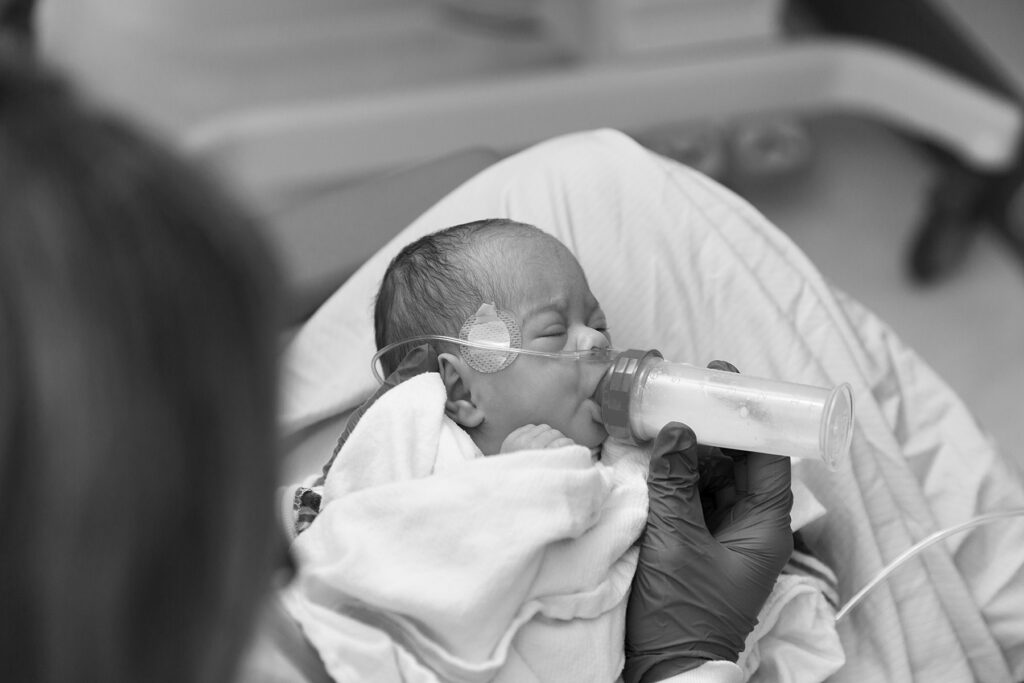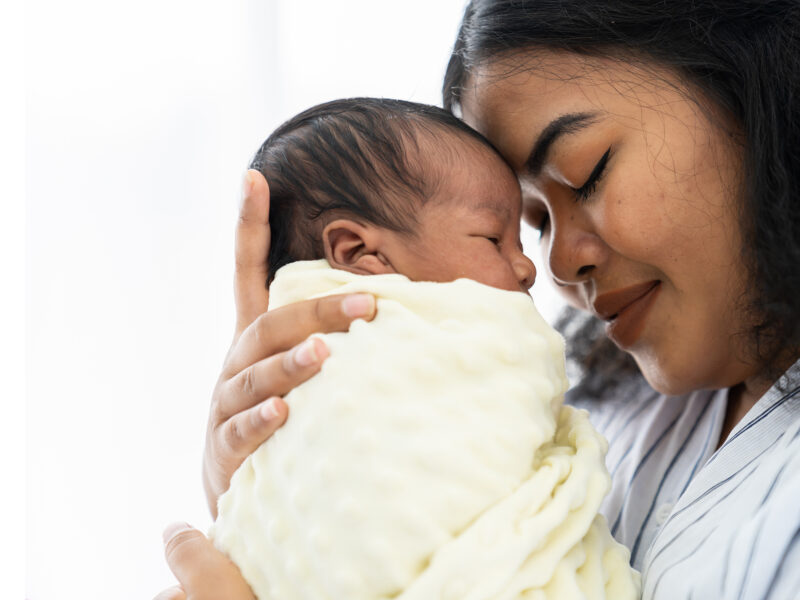Quality Improvement Scorecard Enhances Safety for Newborns
Quality Improvement Scorecard Enhances Safety for Newborns https://pediatricsnationwide.org/wp-content/uploads/2022/07/InPractice_Brief_Quality-Improvement-Scorecard-Enhances-Safety-for-Newborns-1024x683.jpg 1024 683 Emily Siebenmorgen Emily Siebenmorgen https://pediatricsnationwide.org/wp-content/uploads/2023/05/Emily.Siebenmorgen-scaled-e1684876333147.jpg
The collaborative program between academic and community hospitals improves neonatal care quality.
In a recent study published in The Journal of Pediatrics, researchers from Nationwide Children’s Hospital and affiliated level one and two community hospital nurseries implemented a quality improvement (QI) scorecard and found improvements in important perinatal outcomes.
“Roughly half of all newborns in the United States are delivered in low-volume perinatal centers, which continue to have higher infant mortality rates than their high-volume counterparts,” says Omid Fathi, MD, neonatologist at Nationwide Children’s main campus. “Incorporating tools from academic hospitals to lower volume health systems supports larger community health goals. That’s why we decided to work together to develop quality and safety initiatives and the scorecard.”
Partner institutions identified opportunities for improvement in neonatal care – including the need for standardizing delivery room practices, staff buy-in and debriefings for missed care opportunities. The centers prioritized perinatal exposures associated with survival and neurodevelopment – outcomes that are universally important to parents. As a result, the scorecard’s clinical metrics included norothermia upon and after admission, breastfeeding or pumping within one hour of birth, breast milk provided before within 72 hours, and skin-to-skin care in the delivery room.
Baseline data was recorders for one year and included more than 3,000 infants. Then, they collected data for more than 8,000 infants from four community hospital nurseries for four years. Each center reported significant improvements in at least two clinical outcomes after implementing the scorecard.
“The tools that came from this collaboration advance both community and academic health goals,” says Dr. Fathi, who was also the senior author of the recent study. “Our results suggest an actionable way to improve quality of neonatal care and reduce infant mortality, especially in areas at higher risk for racial and ethnic disparities.”
In addition to improved clinical outcomes from scorecard usage, at least one center documented improvements in each scorecard process measure: thermoregulation, use of oxygen and pulse oximetry in the delivery room, identification of infants at risk for sepsis and/or hypoglycemia, and breastfeeding success. Notably, three of the four centers improved rates of obtaining glucose checks for newborns with elevated hypoglycemia risk within 90 minutes.
Martin Hanawalt, MD, coauthor of the paper, hospitalist at Nationwide Children’s and medical director at OhioHealth Mansfield, emphasized the importance of engagement between community hospitals and academic centers and prioritizing pediatric care improvements in non-metro county health systems.
“At our hospital, the administration wanted to do [this program],” Dr. Hanawalt says. “But they’re also worried about adult patients and their emergency department. It can be hard to convince community hospitals that they need to do this sort of thing as well. Incorporating scorecard metrics that can be extrapolated to babies helps.”
Dr. Hanawalt says data collection is ongoing, and the program will continue to add metrics to the scorecard to improve community care.
“We’re collecting more data now on babies with neonatal abstinence syndrome [also referred to as neonatal opioid withdrawal syndrome (NOWS)], and I think there will be more metrics to report on in the future,” he adds.
This feature was published in the Fall/Winter 2022 issue. Download the full issue.
Reference:
Logan JW, Bapat R, Ryshen G, et al. Use of a Quality Scorecard to Enhance Quality and Safety in Community Hospital Newborn Nurseries. The Journal of Pediatrics. 2022 Mar 28;S0022-3476(22)00283-00289.
Image credit: Nationwide Children’s
About the author
Emily Siebenmorgen is a Science Communication Specialist at Nationwide Children's Hospital with a passion for making research findings accessible. From her time writing at Battelle and AWRI's Center for Injury Research and Policy, she has experience distilling complex topics into simple takeaways for both professional and consumer audiences. Emily earned her BS in Psychology and BA in Strategic Communication from The Ohio State University.
- Emily Siebenmorgenhttps://pediatricsnationwide.org/author/emily-siebenmorgen/
- Emily Siebenmorgenhttps://pediatricsnationwide.org/author/emily-siebenmorgen/September 29, 2022
- Emily Siebenmorgenhttps://pediatricsnationwide.org/author/emily-siebenmorgen/October 17, 2022
- Emily Siebenmorgenhttps://pediatricsnationwide.org/author/emily-siebenmorgen/November 1, 2022
- Posted In:
- Clinical Updates
- In Brief










